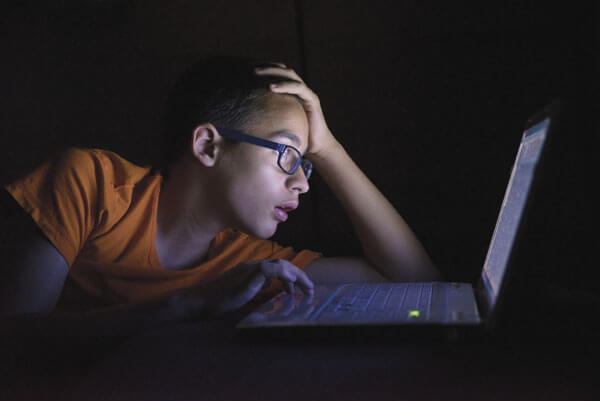
Managing Screen Time During the School Year
It’s back to school season, which means kids will be spending more time on their devices for school work, homework and leisure time when work is done.
While it’s nearly impossible to completely ignore screens, especially during the school year, there are ways that parents can manage screen time for their children and for the whole family.
We sat down with clinical psychologist Dr. Roni Cohen-Sandler about the effects that screen time can have on kids and adolescents and how parents can manage screen time at home.
Psst… Here’s what you need to know about the possible school bus strike.
What are some negative effects of too much screen time?
The potential harms of too much screen time are generally thought to be poorer sleep habits, less motivation for schoolwork, constant interruptions and procrastination, exposure to inappropriate content, and the brain becoming so used to rapid-fire stimulation that attention spans shrink.
But a relatively neglected issue is that when kids are on screens, they are not doing other activities that are valuable for their development and wellbeing. For example, they spend less time outside, getting exercise, and socializing with friends (although some do group gaming).
Kids who spend a great deal of time on screens usually are less likely to create art, music, or poetry. In fact, they may find it harder to tolerate being alone—and just being, which is necessary for these important outlets.
Kids are being exposed to screens earlier and earlier. How can parents set age-appropriate boundaries and rules for their kids around screens?
It is important for parents to be knowledgeable about what doctors and neuroscientists recommend. The American Academy of Pediatrics, for example, states that no children should be watching any sort of screen until after age two.
Common Sense Media has wonderful guidelines for parents. From a psychological viewpoint, it is best to delay as long as possible so children’s brains have as long as possible to develop.
Not only will screen usage change the brain, but also, until kids are mature will they have less ability to plan, anticipate consequences of their behavior, control themselves, inhibit impulses, and manage their time—essentially, the ingredients of good screen hygiene.
What are some strategies families can use to manage screen time at home?
Talk about guidelines before kids are given access to screens. Make them crystal clear by writing out the rules and posting them in a communal place. Explain why they are in place and what will happen if kids violate them.
Then it’s crucial to follow through. Otherwise, kids will always be pushing the limit to see how much they can get away with. The reward center in the brain is powerful, so the pleasure that kids get from screens will be difficult to resist.
Also, it is important to create boundaries for the entire family. Kids learn more from what parents actually do than whatever they say. Parents need to be scrupulously honest with themselves.
If they are constantly on their phones, their well-intentioned efforts to curtail kids’ screen times will fall on deaf ears.
Set aside sacred times and no-screen zones, such as the dinner table, when friends visit, on vacations, and during family times at home and outside, such as on walks or at the beach.
The best way to bring up this subject with kids is not for parents to act like they have all the answers.
Rather, they should approach kids with curiosity, an openness to learn what kids are thinking, a desire to learn the challenges kids face in managing screens, and a nonjudgmental attitude so that kids feel comfortable sharing their worries and any tech-related troubles they get into.
A lot of times having boundaries around screen time come across as a family being “tech-phobic.” How can families accept and even embrace technology while still having boundaries?
Parents can create situations in which the whole family enjoying screens for entertainment. Watching TV shows and movies together can be a source of great fun and laughter.
There is also educational content that often appeals to kids, such as shows about baking, cooking, animals and travel—or other interests they may have.
How can boundaries around technology and screen time change as kids get older?
Kids have to demonstrate that they have the necessary skills to earn more privileges.
They need to be able to meet their responsibilities, be transparent about what they’re doing on their screens, be willing to talk about parents’ concerns, and not show signs of anxiety or panic when asked to shut down their screens.
In many cases, kids default to a screen when they’re bored or looking for something to do. How can parents encourage their kids to pass time without screens?
The best way is modeling what to do when bored—reading, doing a puzzle, having a conversation, listening to music, doing an art project, taking a walk outside, being in nature, helping a parent, etc.
Parents can also play a brainstorming game in which kids create a list of all the things they can do when bored, which is posted in their room for easy reference.






















